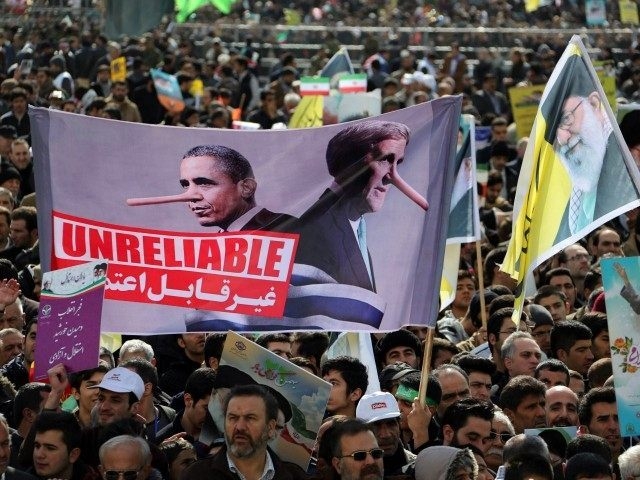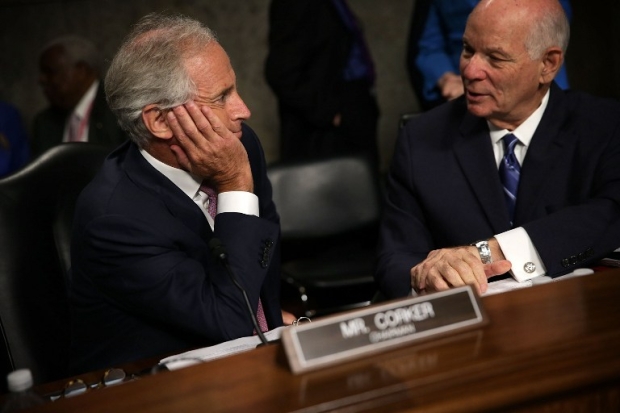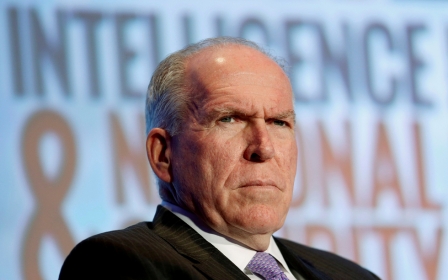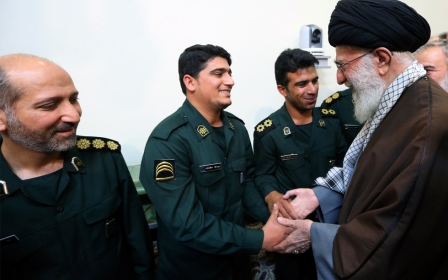Iran sanctions: 10-year extension violates nuclear deal, says Iran

Iran said on Friday that the US Senate's vote to extend sanctions for a further decade violates the terms of a hard-won nuclear deal signed last year, promising that it has "appropriate responses for all situations".
The US Senate on Thursday approved a 10-year extension of sanctions against Iran, a bipartisan measure that would have expired at year's end but now goes to President Barack Obama's desk.
The Iran Sanctions Act passed the Senate 99-0.
Obama is expected to sign the measure, a White House official said, adding that the extension is not believed to violate the nuclear agreement that was reached last year with Iran.
Iran responded on Friday, however, saying it will report the decision to the board that monitors the implementation of last year's landmark deal, which agreed a loosening of sanctions in exchange for curbs on Iran's nuclear capabilities.
"The extension of sanctions by the US Congress is a violation of the deal. We will report it to Iran's committee, assigned for monitoring the implementation of the deal," foreign ministry spokesperson Bahram Ghasemi said.
'Iran has proved that it sticks to its international agreements but it also has appropriate responses for all situations'
Some commentators say the restrictions in the bill go against the spirit of the nuclear deal, known as the Joint Comprehensive Plan of Action with Iran or JCPOA.
Senate Democrats Dianne Feinstein and Tim Kaine, who both backed the JCPOA, said that "sanctions legislation must remain in place to allow an immediate 'snap-back' should Iran violate the JCPOA".
The extension signals a commitment to vigorously enforce the pact over the next 10 years, and would "make clear that there will be immediate consequences should Iran break the terms of the agreement, including the re-imposition of sanctions," they said.
The bill includes penalties against Iran's banking sector, as well as its energy and defence industries.
Incoming president Donald Trump criticised the JCPOA during his campaign for the White House, and has threatened to pull out of the deal entirely.
Several fellow Republicans remain vehemently opposed to the nuclear deal and have called for its termination.
Extending the sanctions "ensures President-elect Trump and his administration have the tools necessary to push back against the regime's hostile actions," said Senate Foreign Relations Committee chairman Bob Corker, who Trump has been considering as a possible pick for secretary of state.
'Height of folly'
In early November, a US official said the Iran nuclear deal would fall apart if a US administration walked away from it, as Trump has vowed to do.
"Any party [walking away from the deal] would have profound consequences on the integrity of the agreement," State Department spokesperson Mark Toner said.
On Wednesday, the CIA's outgoing director John Brennan said it would be the "height of folly" for Trump to tear up Washington's deal with Tehran, because it would make it more likely that Iran and others would acquire nuclear weapons.
"First of all, for one administration to tear up an agreement that a previous administration made would be unprecedented," he said.
"It could lead to a weapons programme inside of Iran that could lead other states in the region to embark on their own programmes," Brennan said in an interview with the BBC on Wednesday.
"So I think it would be the height of folly if the next administration were to tear up that agreement."
And in mid-November, dozens of US national security experts signed a report urging Trump not to reverse the nuclear deal.
A report released by the National Iranian American Council (NIAC) and signed by 76 prominent national security figures and commentators says the deal “proved that diplomacy with Iran can bear fruit”.
The report – entitled “Maximising the Opening with Iran: How President Trump can secure American in interests in the Middle East” – argues that continuing the successful diplomacy that resulted in the deal would help to advance US interests in Syria, Iraq and Afghanistan.
New MEE newsletter: Jerusalem Dispatch
Sign up to get the latest insights and analysis on Israel-Palestine, alongside Turkey Unpacked and other MEE newsletters
Middle East Eye delivers independent and unrivalled coverage and analysis of the Middle East, North Africa and beyond. To learn more about republishing this content and the associated fees, please fill out this form. More about MEE can be found here.




